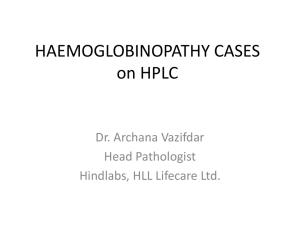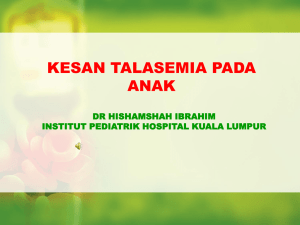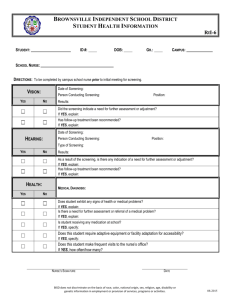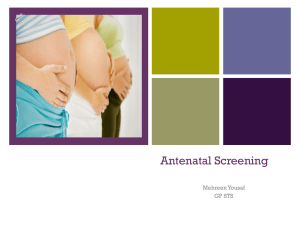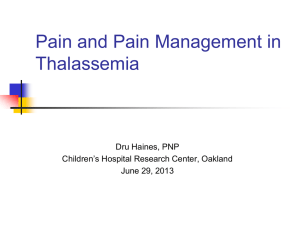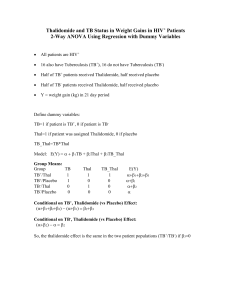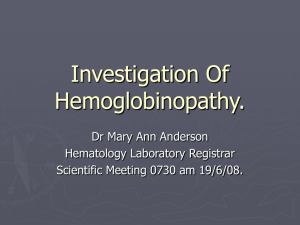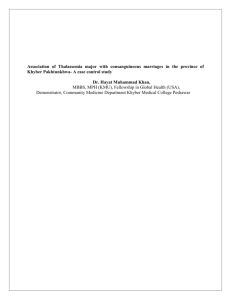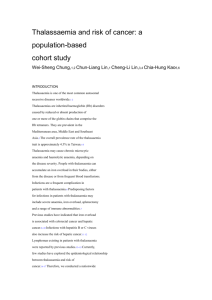Thalassaemia Prevention2
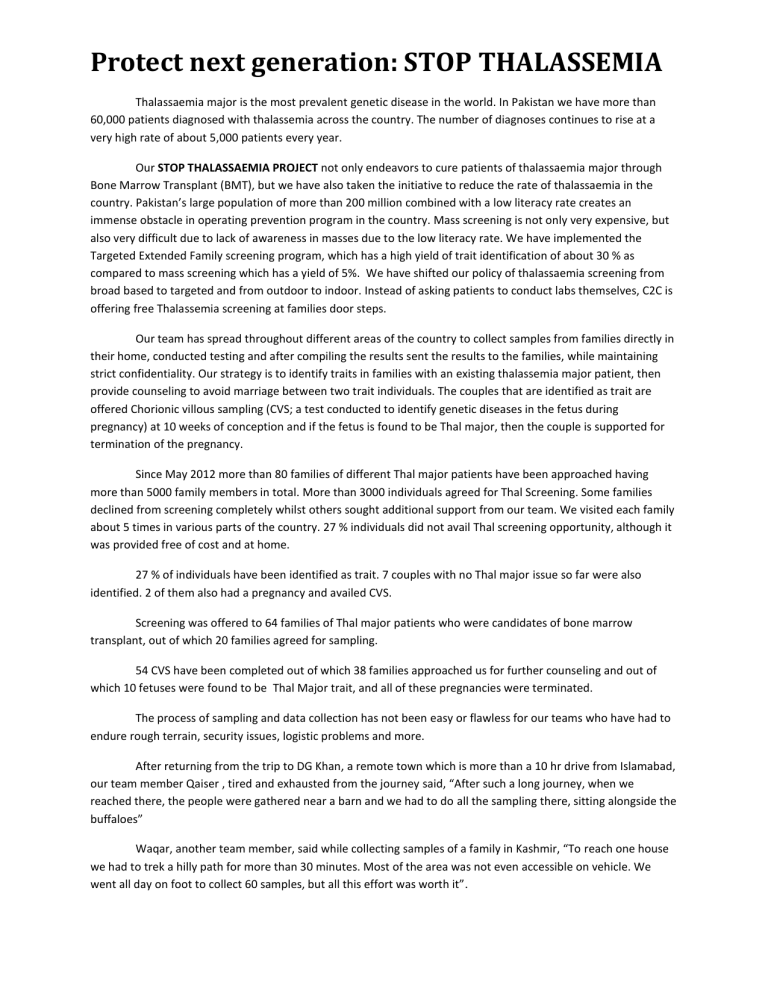
Protect next generation: STOP THALASSEMIA
Thalassaemia major is the most prevalent genetic disease in the world. In Pakistan we have more than
60,000 patients diagnosed with thalassemia across the country. The number of diagnoses continues to rise at a very high rate of about 5,000 patients every year.
Our STOP THALASSAEMIA PROJECT not only endeavors to cure patients of thalassaemia major through
Bone Marrow Transplant (BMT), but we have also taken the initiative to reduce the rate of thalassaemia in the country. Pakistan’s large population of more than 200 million combined with a low literacy rate creates an immense obstacle in operating prevention program in the country. Mass screening is not only very expensive, but also very difficult due to lack of awareness in masses due to the low literacy rate. We have implemented the
Targeted Extended Family screening program, which has a high yield of trait identification of about 30 % as compared to mass screening which has a yield of 5%. We have shifted our policy of thalassaemia screening from broad based to targeted and from outdoor to indoor. Instead of asking patients to conduct labs themselves, C2C is offering free Thalassemia screening at families door steps.
Our team has spread throughout different areas of the country to collect samples from families directly in their home, conducted testing and after compiling the results sent the results to the families, while maintaining strict confidentiality. Our strategy is to identify traits in families with an existing thalassemia major patient, then provide counseling to avoid marriage between two trait individuals. The couples that are identified as trait are offered Chorionic villous sampling (CVS; a test conducted to identify genetic diseases in the fetus during pregnancy) at 10 weeks of conception and if the fetus is found to be Thal major, then the couple is supported for termination of the pregnancy.
Since May 2012 more than 80 families of different Thal major patients have been approached having more than 5000 family members in total. More than 3000 individuals agreed for Thal Screening. Some families declined from screening completely whilst others sought additional support from our team. We visited each family about 5 times in various parts of the country. 27 % individuals did not avail Thal screening opportunity, although it was provided free of cost and at home.
27 % of individuals have been identified as trait. 7 couples with no Thal major issue so far were also identified. 2 of them also had a pregnancy and availed CVS.
Screening was offered to 64 families of Thal major patients who were candidates of bone marrow transplant, out of which 20 families agreed for sampling.
54 CVS have been completed out of which 38 families approached us for further counseling and out of which 10 fetuses were found to be Thal Major trait, and all of these pregnancies were terminated.
The process of sampling and data collection has not been easy or flawless for our teams who have had to endure rough terrain, security issues, logistic problems and more.
After returning from the trip to DG Khan, a remote town which is more than a 10 hr drive from Islamabad, our team member Qaiser , tired and exhausted from the journey said, “After such a long journey, when we reached there, the people were gathered near a barn and we had to do all the sampling there, sitting alongside the buffaloes”
Waqar, another team member, said while collecting samples of a family in Kashmir, “To reach one house we had to trek a hilly path for more than 30 minutes. Most of the area was not even accessible on vehicle. We went all day on foot to collect 60 samples, but all this effort was worth it”.
Protect next generation: STOP THALASSEMIA
Figure 1 Collecting Samples in a barn
Figure 2 Sample Collection in a house in swat.(security alert area) Took all day to reach patients over the hills.
Protect next generation: STOP THALASSEMIA
Figure 3 Our team, Looking at a huge family tree. 150 samples done that day
Figure 4 Our team went on foot onwards up the hill,in the jungle, to reach a family . It took all day to collect 50 samples. all on foot.
